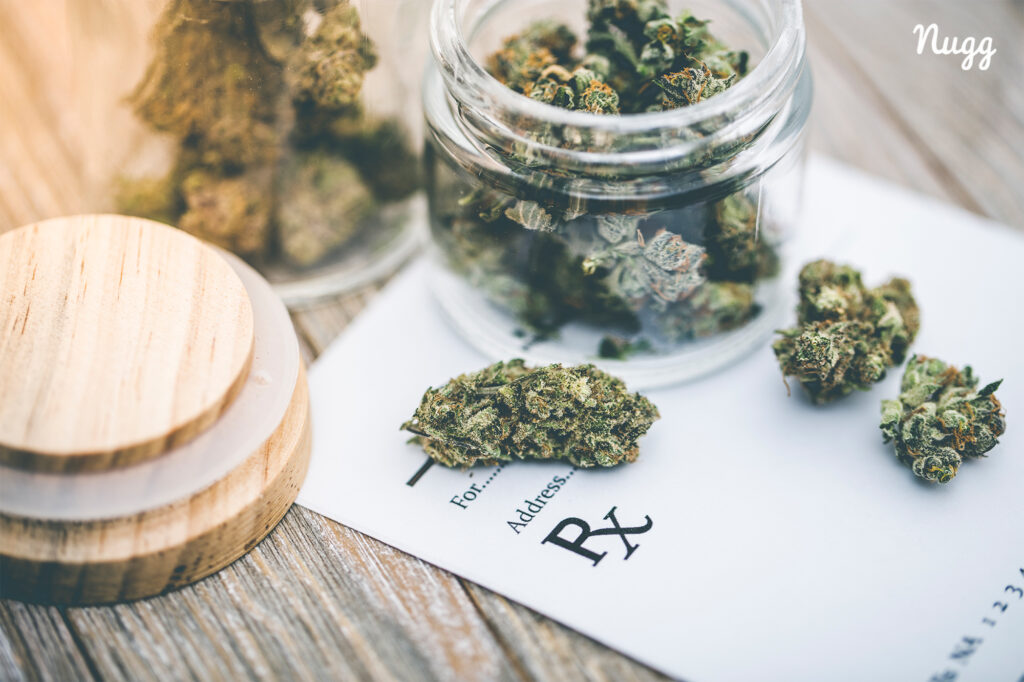
Bone health is incredibly important and can significantly impact a person’s life, especially for individuals with fibrous dysplasia. The condition occurs when the body replaces healthy bone with fibrous tissue. This tissue is similar to scars and weakens the bone. Over time, the bone can break or change its shape.
Fibrous dysplasia is a result of gene mutation. This mutation happens in utero, though symptoms may not be present at birth. When an individual has this mutation, certain bones in their body will form abnormal tissue.
There is currently no cure for this condition. However, some treatments can lessen symptoms and improve quality of life.
What Causes Fibrous Dysplasia?
A genetic mutation causes fibrous dysplasia. The specific mutation that an individual has will impact the bones that are impacted. Because of its genetic cause, this condition can’t spread from affected bones to those unaffected.
Fibrous Dysplasia Signs & Symptoms
Symptoms of fibrous dysplasia can vary drastically; some individuals have severe symptoms, while others may have no symptoms. The symptoms, as well as their severity, are typically determined by how many bones are affected by the condition.
Fibrous dysplasia sometimes only presents on one side of the body. The most common bones affected include the skull, pelvis, and ribs.
If you have fibrous dysplasia symptoms, they may include:
- Pain
- Brittle bones
- Varied bone growth rates
- Bone bowing
- Mobility changes
- Scoliosis
- Hearing loss
In some cases, individuals will be diagnosed with bone cancer. However, this is very rare, and the previously listed symptoms are much more common.
Can Cannabis Help Alleviate Symptoms of Fibrous Dysplasia?

A substantial amount of research has not been done to understand if cannabis could help fibrous dysplasia. Because of this condition’s genetic cause, cannabis can’t act as a cure.
While we don’t know much about the impact that cannabis can have directly on fibrous dysplasia, some information is available about how it can impact bone health.
CBD has been demonstrated in a number of preclinical studies to help with bone growth and repair, and the CB1 and CB2 receptors are both indicated in the regulation of bone growth and healing.1 Other studies found that cannabis has a neutral effect on bone health, not providing any significant benefits or severe concerns.2
Some of the symptoms of fibrous dysplasia, like pain, may be relieved by using cannabinoids like CBD and THC, either alone or in combination.3,4
There is a strong need for more research to understand this condition and how cannabis could impact it, but there is a precedence for its potential based on what we know when it comes to cannabinoids and bone growth.
If you have fibrous dysplasia and are wondering whether or not cannabis use may be right for you, speak with your doctor. They’ll be able to provide you with further information and recommendations specific to your situation.
Legality and Doctor’s Recommendation
To determine if your state considers fibrous dysplasia to be a qualifying condition for medical marijuana, check out our Laws & Regulations section for the medical cannabis rules for your state.
If you find that your state recognizes fibrous dysplasia or its symptoms as a qualifying medical condition, you can seek a doctor’s recommendation to get your medical cannabis card in your state.
How NuggMD Can Help

NuggMD is the nation's leading medical marijuana technology platform, serving patients in over half the states in the U.S. We’ve connected over 2,000,000 patients with their new medical marijuana doctors face-to-face via our state-of-the-art telemedicine platform.
We believe that every human has the right to explore the benefits of medical cannabis and are fully committed to helping each patient explore all their options in their journey to wellness. For further information on whether you qualify for medical cannabis, select your state.
References
- Raphael-Mizrahi B, Gabet Y. The Cannabinoids Effect on Bone Formation and Bone Healing. Current Osteoporosis Reports. 2020;18(5):433-438. doi:https://doi.org/10.1007/s11914-020-00607-1
- Ehrenkranz J, Levine MA. Bones and Joints: The Effects of Cannabinoids on the Skeleton. The Journal of Clinical Endocrinology & Metabolism. 2019;104(10):4683-4694. doi:https://doi.org/10.1210/jc.2019-00665
- Peng J, Fan M, An C, Ni F, Huang W, Luo J. A narrative review of molecular mechanism and therapeutic effect of cannabidiol (CBD). Basic & Clinical Pharmacology & Toxicology. 2022;130(4):439-456.
- Mlost J, Bryk M, Starowicz K. Cannabidiol for Pain Treatment: Focus on Pharmacology and Mechanism of Action. International Journal of Molecular Sciences. 2020; 21(22):8870. https://doi.org/10.3390/ijms21228870
The information in this article and any included images or charts are for educational purposes only. This information is neither a substitute for, nor does it replace, professional legal advice or medical advice, diagnosis, or treatment. If you have any concerns or questions about laws, regulations, or your health, you should always consult with an attorney, physician or other licensed professional.

